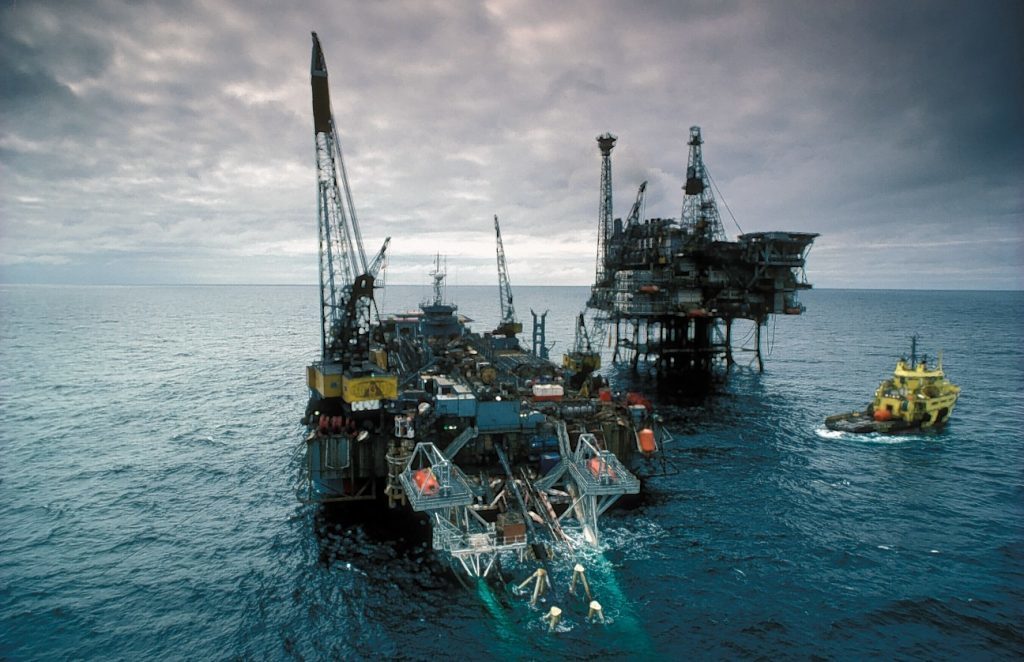
Oil investors discouraged by Wednesday’s data showing a retreat in Chinese crude imports can find cheer in another figure released in the world’s top buyer on the same day.
The Asian nation raised the quota for use of overseas oil by non-state companies in 2018 by 63 percent versus the prior year, according to a statement from the Ministry of Commerce. The increase is equivalent to 1.1 million barrels a day, which is more than what OPEC member Algeria pumps. The firms that’ll use the allocation include private refiners, known as teapots, operating in the eastern province of Shandong.
The boost in the quota signals that consumption in the world’s biggest energy user will continue to remain strong after purchases by teapots lifted the nation past the U.S. as the globe’s No. 1 crude buyer. While OPEC and its allies including Russia are seen prolonging their output curbs past March to clear a global glut, the sustainability of crude’s current rally will depend on whether there’s enough demand to soak up supply.
“China will remain the strongest demand driver for the world’s oil industry for the next couples of years,” said Li Li, the head of research at ICIS China. “The total imports by Chinese state-owned and private refiners and traders will increase remarkably with the expansion of existing capacity and starting-up of new plants.”
China set 2018 crude import quotas for non-state companies at 142.42 million metric tons, according to the ministry statement. That’s equivalent to 2.9 million barrels a day, or about 34 percent of the nation’s average overseas purchases this year, data compiled by Bloomberg show. For 2017, the government kept the allocation unchanged from a year earlier at 87.6 million tons.
Also on Wednesday, data from China’s General Administration of Customs showed crude imports in October retreated from near-record levels to the lowest in a year. Purchases declined because some of the teapots have used up their annual import allowances for 2017 already and were now shifting toward fuel oil, a residual product from refining, as an alternative feedstock, according to ICIS China.
Brent crude, the benchmark for more than half the world’s oil, was up 0.1 percent at $63.58 a barrel on the ICE Futures Europe exchange at 5:16 a.m. in London. U.S. marker West Texas Intermediate rose 0.1 percent to $56.88 a barrel.
Record Rates
After announcing the total allocations for each year, the Chinese government then distributes the quota among individual companies in batches. The first of these for 2018 will be based on firms’ actual imports during the first ten months of this year, according to the ministry statement. About 34 private oil refiners have been approved or are expected to obtain total allocations of more than 100 million tons in the initial round, according to industry researcher ICIS China’s Li.
As the government makes the individual allocations, the eventual total for the year may differ from the preliminary annual quota.
Independent refiners in Shandong have boosted their operating rates to record levels this month, according to industry website Oilchem.net. Their overseas purchases have included cargoes from Latin America, Africa and the U.S.
Still, it hasn’t been smooth sailing for the teapots. They have been plagued by infrastructure issues, have come under the scrutiny of China’s taxman, have been denied fuel export licenses and are facing increased competition from the nation’s state-owned behemoths. And a new generation of firms building some of the world’s biggest plants are threatening to eclipse them.
$24 Billion Refinery
One of the planned facilities is a $24 billion refinery on Zhoushan island in Zhejiang province, expected to refine 20 million tons a year, or about 400,000 barrels per day, when it’s completed in 2018. Operator Rongsheng Petrochemical Co. plans to double its capacity by 2020. Hengli Group is planning a facility that aims to process 20 million tons in the northern Chinese city of Dalian in Liaoning province.
“It is still unclear what kind of import licenses will apply to these giant projects as they are unprecedented and so unique for the Chinese oil industry,” Li said. “One thing is pretty sure. Demand will keep growing here and cheer up major crude producers.”
